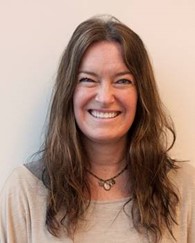Posted • Last updated
Closed
Commitment: Long-term
Connection method: Virtual
Open to Northern Region, Patient partners from Haida Gwaii to Houston
Last updated
Volunteer Opportunity
Have you had to leave your home community in Northwestern BC for medical care? Researchers at the University of Northern British Columbia (UNBC) are conducting a study to learn what patients experience when they travel away from Northwestern BC to receive medical care in a larger centre. Your stories and ideas can help improve this experience for patients and families in the future.
Lead Organization/Department
Northern Medical Program, University of Northern British Columbia
Aim
Researchers at UNBC and the University of British Columbia (UBC) Faculty of Medicine are conducting a study called Optimizing the Patient Experience in Medical Travel. This research aims to better understand the experiences of patients and families who must travel away from Northwestern BC to receive medical care in a larger centre elsewhere in BC. In doing this, we hope to understand how these experiences can be improved.
We are looking for patients and family members to participate in a research interview called patient journey mapping. The interview consists of discussing your experience of travelling away from home and getting care at a larger centre.
Level of Engagement
This opportunity is at the level of consult on the spectrum of engagement. The promise to you is that the health care partner will listen to and acknowledge your ideas and concerns, and provide feedback on how your input affected the decision.
Eligibility
You may be eligible to participate in this study if you are:
• 18 years of age or older
• A resident of a community in Northwestern BC; and
• An individual or family member of an individual who has had to leave their community for medical care at a larger medical centre elsewhere in BC
• Please note:
– Applicants must have previously attended a PVN orientation session and completed the Volunteer Agreement. If you have not attended an orientation session but you are interested in this opportunity, please contact Cathy Almost directly to see if accommodations may be possible.
Logistics
• Number of vacancies: 10
• Date/Time: the date and time of participant interviews will be determine based on the availability of the participant and the research assistant.
– Interviews will require 2 to 4 hours of your time.
• Location: Due to COVID-19, all interviews are being conducted virtually by phone or videoconference (Zoom).
• Commitment: One time
– The study participants will be asked to engage in a one-on-one interview with a trained Research Assistant. -You will also receive a copy of the Patient Journey Map that is created from your story and you will be given the opportunity to make sure all of the information is correct
Reimbursement
No out of pocket expenses are anticipated for this engagement opportunity. However, if you meet the eligibility criteria, but have concerns about your ability to participate, please contact Cathy Almost at calmost@bcpsqc.ca to see if support options are available. We are always seeking to better understand and reduce barriers to participation.
Background
Critical illness can be a stressful experience for patients. This stress can be made worse for people living in Northwestern BC who must travel away from their home communities to unfamiliar larger cities.
This study is led by Dr. Denise Jaworsky, researcher at UNBC, and Dr. Dave Sohi, faculty member at UBC Faculty of Medicine. It aims to better understand the experiences of patients and families who must leave their home communities to receive medical care at a larger centre elsewhere in BC. By understanding these experiences, we hope to understand how we can improve this process for patients and families. The participants should know that we will do our best to advocate for changes, but that some of the changes needed are large and may take a long time to achieve.
What are the risks or benefits of participating in the project?
If you choose to participate in the study, you will be asked to discuss the challenges and difficulties faced during your transfer to urban centers for higher care. These conversations may trigger negative emotional memories, especially if you or your family member has had a particularly distressing experience. You do not have to answer questions that you don’t feel comfortable with. You will also receive a list of community and telephone supports to contact if the interview has triggered emotions that you wish to discuss confidentially with a person who is not involved in this study.
The other risk is that other people may be able to identify you based on things that you said in your interview. Even though your name and identifying details are removed, there is the possibility that people can determine who you are by stories you have shared. In small communities, this is something that is certainly possible. After the interview is completed, you have the opportunity to review the transcript of the interview as well as your patient journey map to approve, change, add, or remove anything that you do or do not wish to include in your story.
Participating in this study also has a possible benefit. By sharing what you think is important, you may be able to help improve the process of medical travel for other people from Northwestern BC.
This research applies to all care settings, including acute care, community care, and residential care.
Health Care Partner Contact Information
Cathy AlmostEngagement Leader, Patient and Public Engagement | Northern Region
250-615-9932
calmost@bcpsqc.ca

